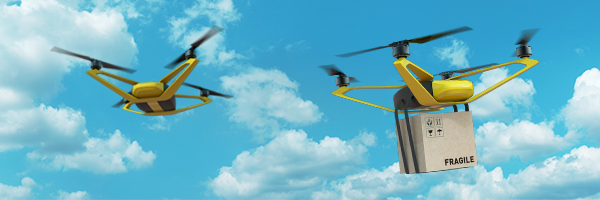
Click the title below to view the ICAO TV recording of the webinar
Certification of Automated Systems
DATE & TIME: 01 June 10:00 - 11:30 EST
Online Registration Closed
Technology Readiness, Acceptance, and Certification
Highly automated flight and operations are expected to support the needs related to pilot shortage, and scalability while maintaining safety. While a number of use cases for various levels of automation exist, the path towards readiness, acceptance, and certification continues to be bit unclear. The panelists will consist of people from industry, and academia who will offer perspectives on use cases. The panelist will discuss various approaches and best practices to achieve technology readiness, acceptance and potential certification approaches.
Moderator
 Mike Gadd {Blue Bear Systems Research}
Mike Gadd {Blue Bear Systems Research}
Mike is a Fellow of the Royal Aeronautical Society with over 22 years of experience in regulatory roles with the UK Civil Aviation Authority and the European Aviation Safety Agency where he has held technical lead and management roles in unmanned aircraft systems, cyber, spaceplane programmes and aircraft airworthiness/certification and safety oversight. Prior to this he worked in the aircraft design and production sectors, gaining a background in technical systems design, risk and safety management, system safety assessment, airworthiness certification, continuing and continued airworthiness and in-service operational support.
Having returned to the private sector he is working in the innovative technology industries focusing on timely, scalable and cost appropriate solutions for safe operation of piloted and unpiloted aircraft within the shared airspace using high authority automation and autonomous systems that consider societal concerns around safety, privacy and potential cyber issues and the evolving regulatory environments.
He assists in the development of the regulatory frameworks and processes through support to national and international policy and rulemaking activities including JARUS, EUROCAE, EASA and ICAO, where he has held previous chairmanship of the Remotely Piloted Aircraft Systems Panel.
Speakers
 Siddartha Khastgir {University of Warwick}
Siddartha Khastgir {University of Warwick}
Siddartha Khastgir is the Head of Verification & Validation for Connected & Autonomous Vehicles (CAV) at WMG, University of Warwick. His research focuses on generating safety evidence and arguments, test scenario generation, simulation-based testing, and safety of AI systems. Leveraging the cross-domain nature of safety, he is also involved in safety assurance research in aviation & marine autonomous systems.
Siddartha is an active member of various national and international standardisation and regulatory groups, including ISO, SAE and ASAM. Currently, he represents the UK on several ISO technical committees and is the lead author for two new ISO standards for aspects of automated driving systems. He sits on the United Nations Economic Commission for Europe (UNECE) committees on safety of automated driving.
He has received numerous national and international awards for his research contributions, including the prestigious UKRI Future Leaders Fellowship in 2019 focused on safety evaluation of CAVs.
 Nick Tudor {Co-founder D-RisQ}
Nick Tudor {Co-founder D-RisQ}
Nick has a BEng degree in Electrical Electronic Engineering and was an RAF Officer Engineer for 20 years. In 2000, he gained a MSc in Software Engineering, and became the senior software advisor on multiple air programmes including JSF, Eurofighter, Chinook and Hawk. After the RAF, Nick was an active contributor to DO-178C/ED-12C with a focus on DO-333/ED-216 (Formal Methods) and is a member of the Forum for Aeronautical Software and contributed to the paper for EASA/FAA on use of DO-178C for UAS. In 2012, Nick co-founded D-RisQ which produces automated formal methods verification tools for systems and software which support compliance to many standards. Since then he has carried out a number of aerospace and autonomous systems projects in various sectors, including nuclear, automotive, rail and cyber security.

Wes Ryan {NASA’s Aeronautics Research Institute (NARI)}
Wes joined NASA’s Aeronautics Research Institute (NARI) in March of last year and is working automation integration strategies and practical implementation of AI/ML for aviation purposes for NASA. He is also supporting NASA’s Convergent Aeronautics Solutions program to identify paths to transformational aeronautics concepts for future aircraft designs, digital airspace management, and new operational capabilities. Prior to NASA, Wes was with the FAA for 18 years working R&D and certification for remotely piloted aircraft and safety-enhancing technology for General Aviation. He holds both a master’s and bachelor’s degree in Aerospace Engineering from the University of Kansas. He is a Fellow in the Royal Aeronautical Society and a Senior Member of the American Institute of Aeronautic and Astronautics.

Zena Assaad {Australian National University}
Zena studied a Bachelor of Aerospace Engineering and completed a PhD exploring decision making under uncertainty to support strategic air traffic flow management. She has worked as a liaison officer, bridging the communication between civil and military airspace, she has worked on Australia's first satellite-based augmentation systems project and has worked with Australia's aviation regulatory body. Zena is currently a senior research fellow with the Australian National University. She leads research around systems engineering practices and safety management systems for robotics, autonomous systems and AI, with an interest in emerging aviation technologies.
